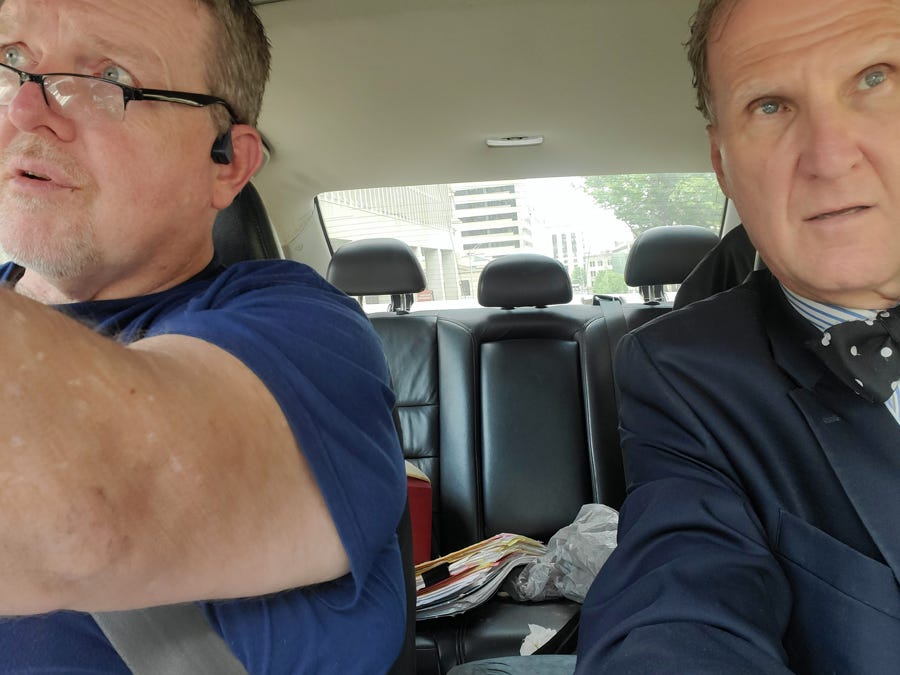Private travel = private use = ‘family purpose doctrine’ = defense liberty, I
Cases recognize private rights, private interest in use of automobiles; family purpose allows for apportionment of liability in auto accident, with dad as licensing authority

CHATTANOOGA, Tenn., Saturday, Our defense of private travel intends to throw down commercial government and Jim Crow social engineering of blacks and the poor as a point of Gospel truth tending toward the abolition of slavery.
Part I
The family purpose doctrine is a system that holds moms, dads or heads of households as the enabling and liable party if there is an accident, whether that head is at the wheel, or another responsible party (wife or mom).
If dad is responsible for a son’s crash, reimbursement of harm starts with him. He may have insurance. He may have from which to pay repair or hospital tabs for which he is personally responsible.
The family purpose doctrine is one we lovers of Christian liberty must use to defend free communication by auto on the roads, and defy the police state and its commercial enforcement, evidenced thousands of times in YouTube videos of traffic stops and First Amendment auditors challenging cops and deputies.
Private use = family purpose use
Traffic stops originate from pretended “crime prevention” or criminal purpose, and slop over into administrative or civil law. Traffic infractions are converted unconstitutionally and illegally into crimes because of the crime–prevention origins of police and sheriff power.
My work in court and here is to show that crime-preventing authority has a limit, and can be restrained from crossing over into motor vehicle administration under the privilege law. In Tennessee, that’s the carrier law, Title 65, chapter 15, and Title 55, motor and other vehicles.
Says Christopher Sapp, midstate bureau chief for Eagle Radio Network in Chattanooga:
The family purpose is different from the privilege purpose. Family purpose is for the father’s use of the road. It is for the use and benefit of the individuals in the family, for leisure, for the pursuit of happiness. Those are all family use purposes for utilizing the road that is separate and apart from privileged use of the road.
Mr. Sapp objects as “a judge-made presumption”to one case that says the father “makes it his affair and business to entertain” members of his family. It may well be that the family purpose doctrine is a “judge-made legal fiction” but “family purpose cannot be privilege.” It’s merely an argument to say a dad is making family pleasure “his business.”
A business would require profits. A business would be something you would engage in — the courts alo talk about ‘in the normal course of life or business you’re free to use the road without license.’ It can’t be business to avail yourself of government business such as the post office [as per Crandall v. Nevada.] ‡ The father is not making himself the family jester or entertainer who stands in the middle of a three-ring circus performing magic tricks for his kids. He’s not in the entertainment business driving his family around *** as a tour guide. He’s not a tour guide. He’s taking his family to church, or to the doctor, or the grocery store and home. That’s convenience and necessity.
That is a right that we have to use the roads, because the roads are held in common by all people. We may not have a proprietary interest in the road any more so than anybody else, but we don’t have any less interest in the road than anyone else, either, merely because we are using the road for convenience and necessity as opposed to privilege.
Our right to avail ourselves of government services is common, and equal, because we pay taxes. We don’t pay the same amount of taxes as those in privilege, because we’re not making extraordinary use of the road. Were making ordinary use of the road.
Our use of the road is ordinary. Family use is ordinary. Business use, privilege use, is extraordinary.
‡ A United States citizen has right to free access to seaport of federal government, sub-treasuries, land offices revenue offices and courts in several states, and this right is independent of will of any state over whose soil he must pass in exercise thereof.
Crandall v. State of Nevada, 73 U.S. 35, 37, 18 L. Ed. 745 (1867)
David runs a personal nonprofit fighting and mercy ministry. He thanks you for checks sent directly to c/o 10520 Brickhill Lane, Soddy-Daisy, TN 37379. Also, in GiveSendGo



